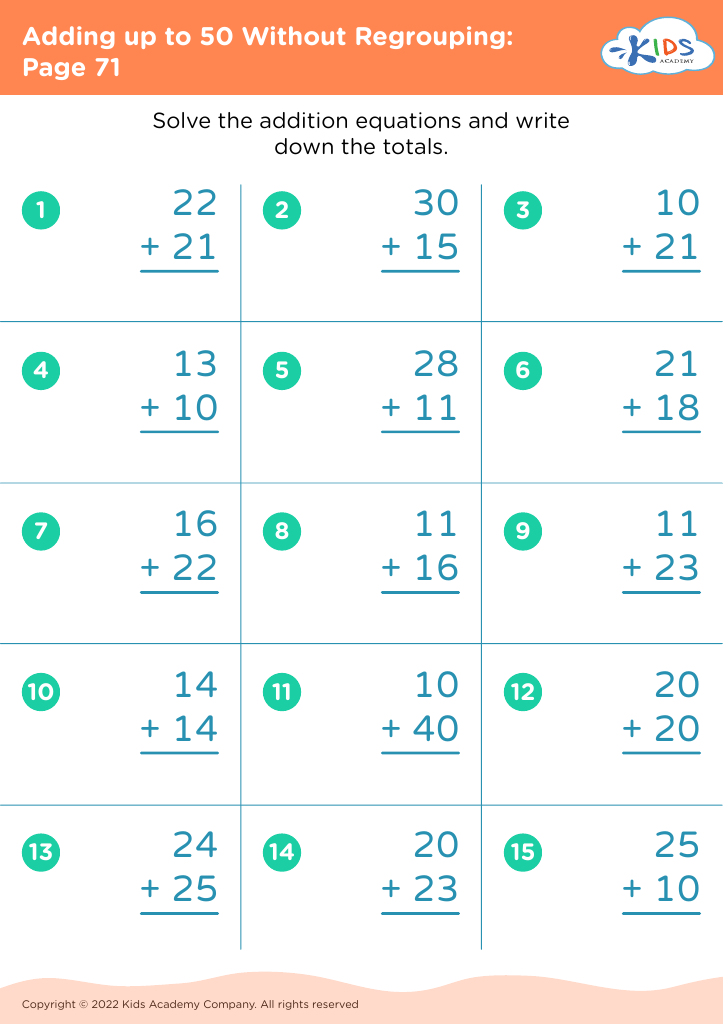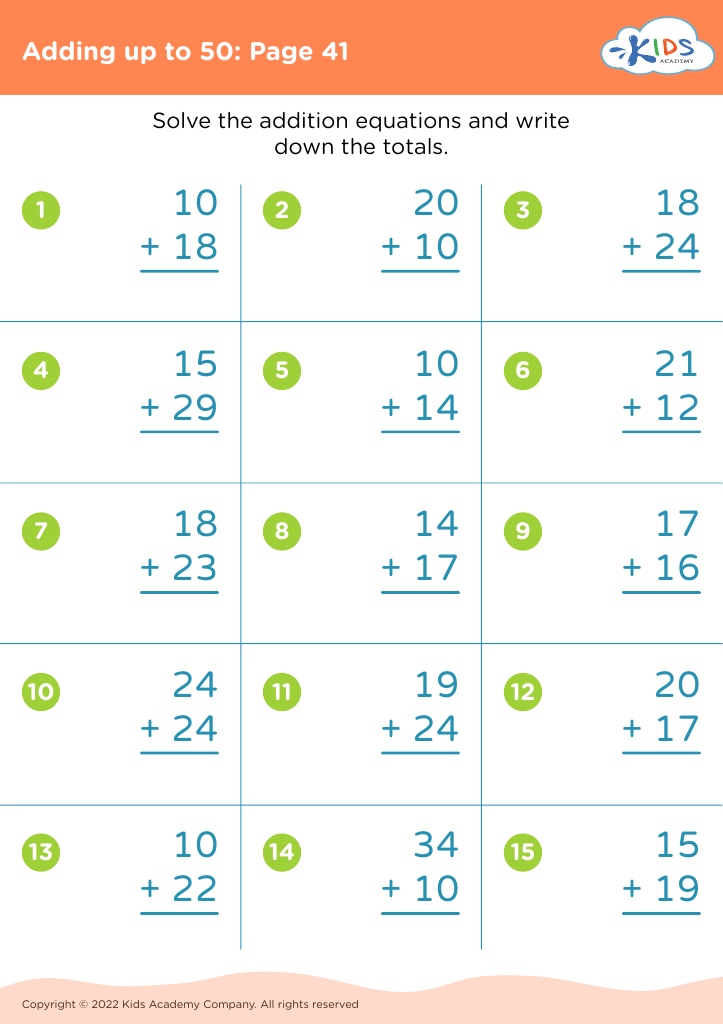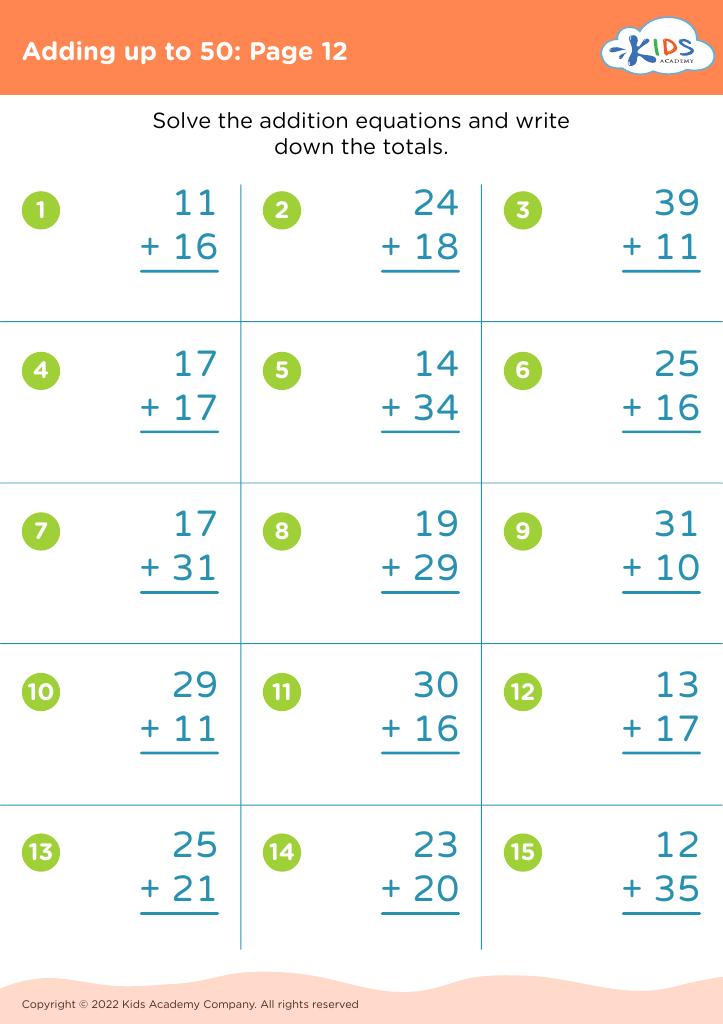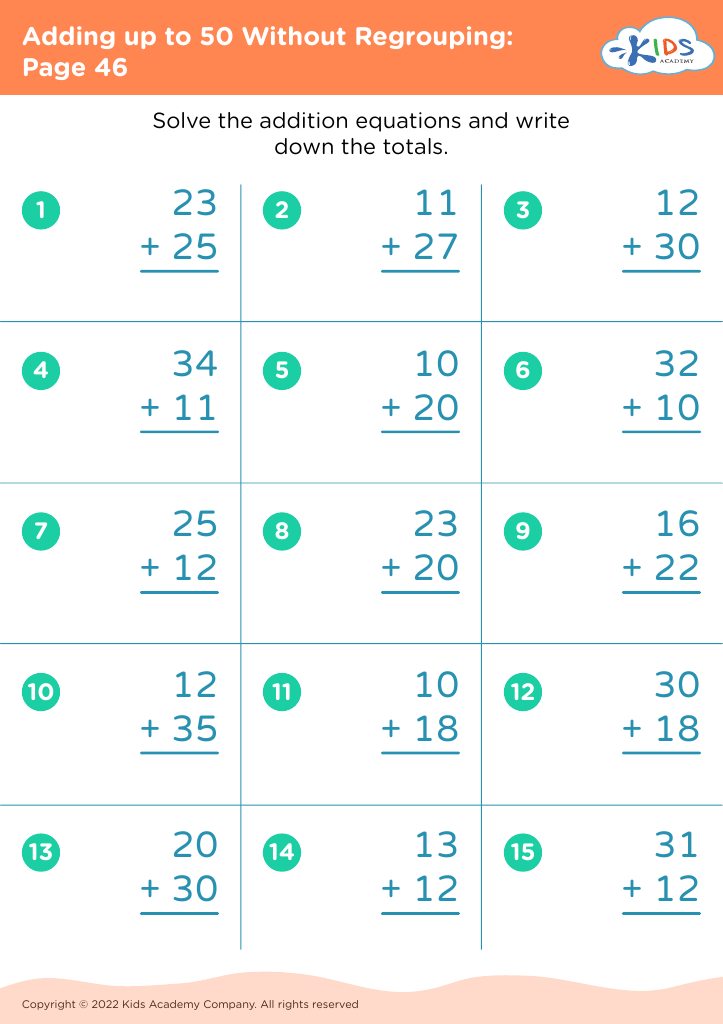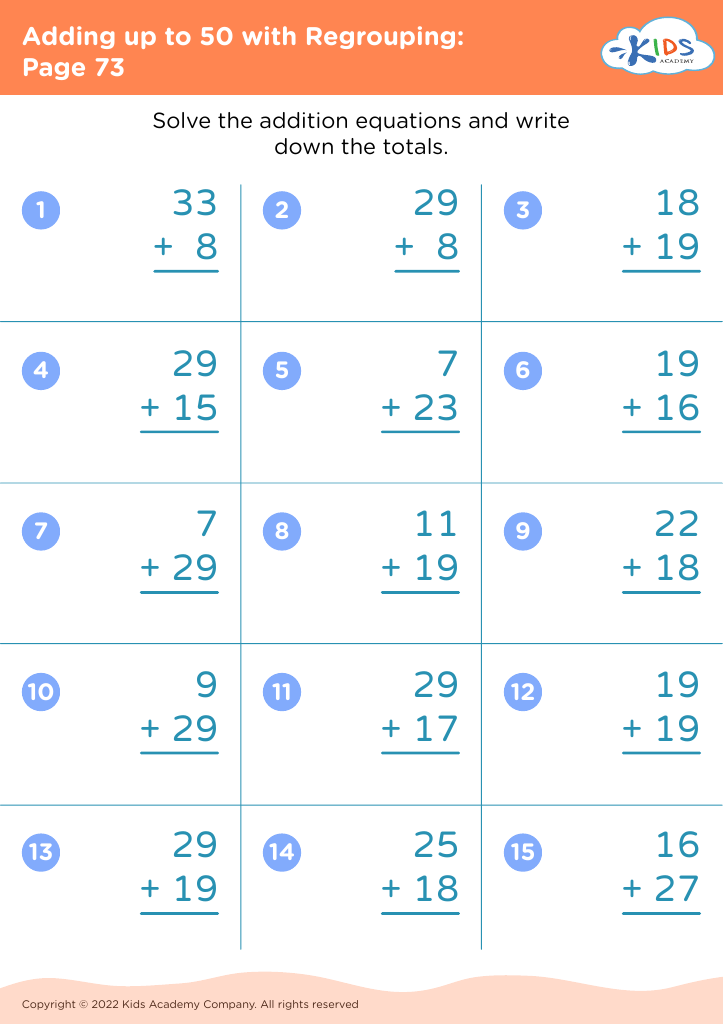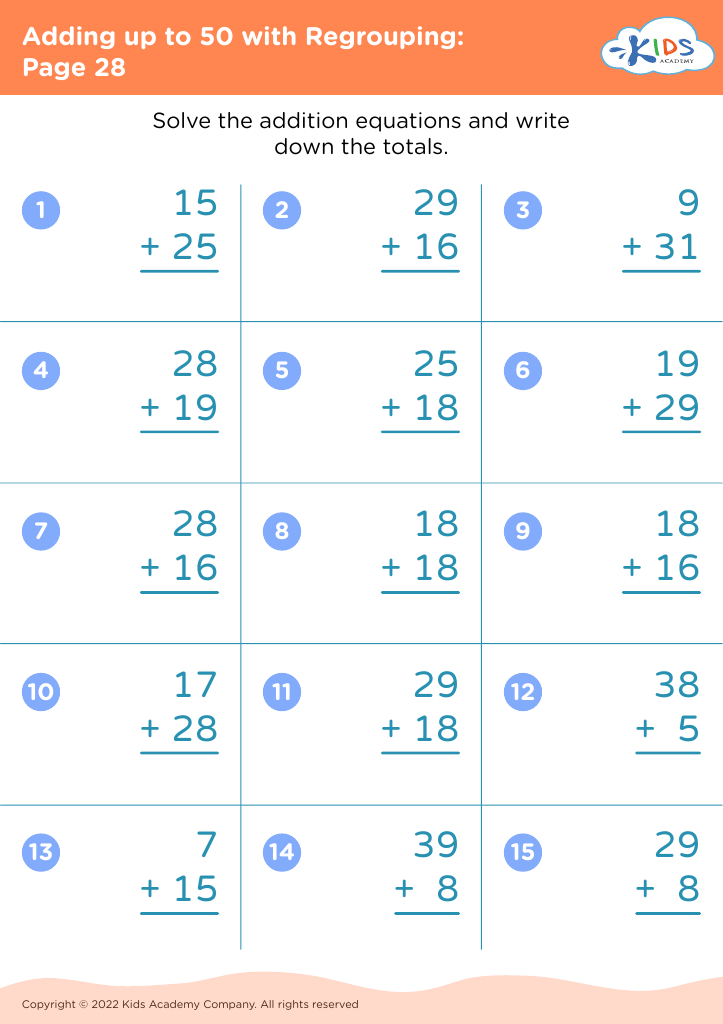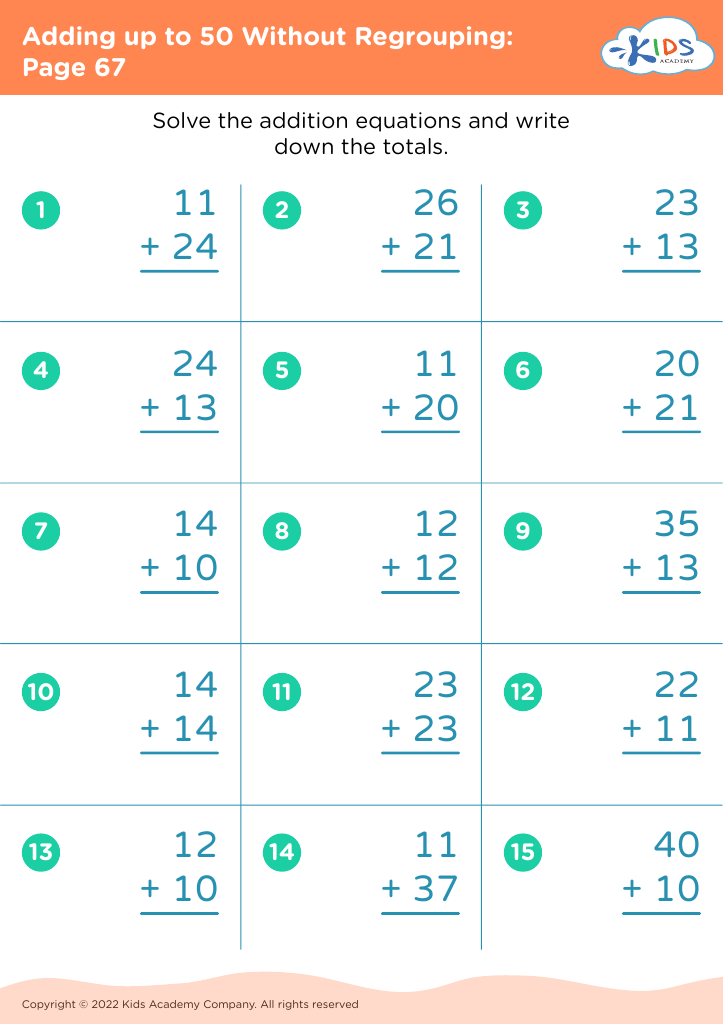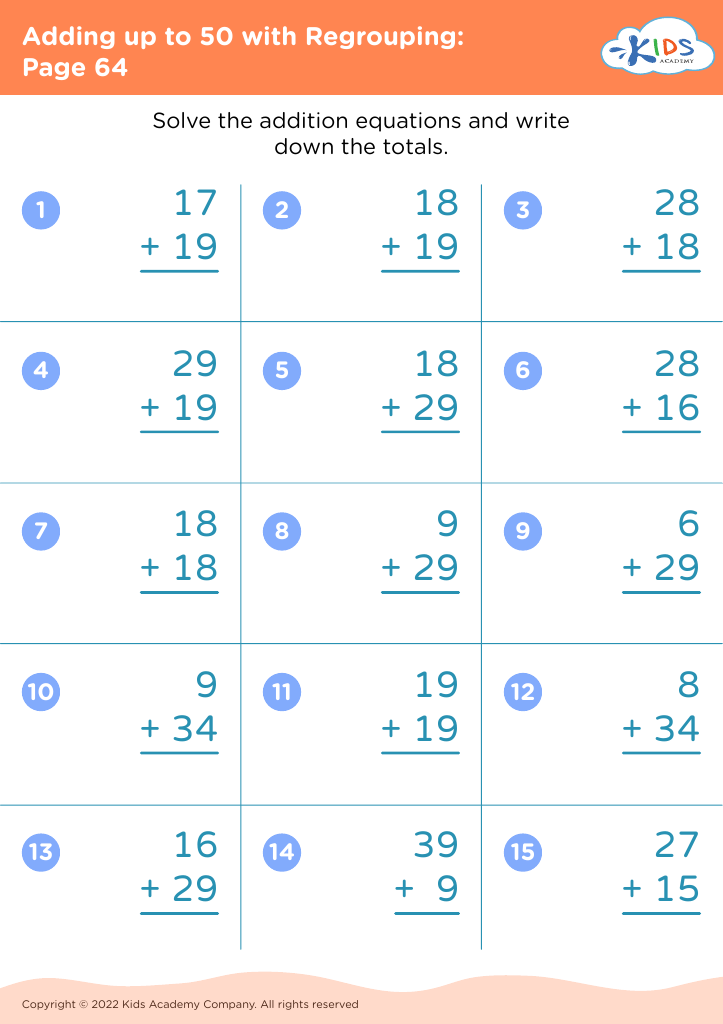Counting practice Adding up to 50 Worksheets for Ages 4-7
16 filtered results
-
From - To
Enhance your child's counting skills with our "Counting Practice: Adding Up to 50 Worksheets," designed for ages 4-7! These engaging and interactive worksheets provide an entertaining way for young learners to practice their addition and counting skills. With a variety of fun exercises, children will confidently learn to add numbers up to 50, aiding in their comprehension of basic math concepts. Perfect for home or classroom use, our worksheets foster independent learning and promote numeracy through colorful visuals and engaging scenarios. Help your child build a strong math foundation today with our educational resources tailored specifically for early learners!
Counting practice, particularly adding up to 50, is crucial for children aged 4-7 as it lays a strong foundation for their mathematical development. During these formative years, children are naturally curious and eager to learn, making it the perfect time to introduce fundamental concepts of number sense, addition, and problem-solving.
Engaging in counting activities helps children understand quantity, develop their understanding of numbers, and enhance their cognitive skills. These activities also promote fine motor skills through hands-on practices such as using counters or drawing lines. As they progress to adding up to 50, they begin to grasp larger numbers and their relationships, crucial for future mathematical learning.
Moreover, counting helps improve critical thinking and enhances children's ability to recognize patterns and relationships in numbers, promoting a deeper understanding of math concepts. Importantly, incorporating fun and playful counting activities keeps kids motivated and interested in learning.
Ultimately, parents and teachers should prioritize counting practice because it not only aids in academic success but also builds confidence and a positive attitude toward mathematics, fostering a lifelong interest in the subject. Engaging in these activities creates opportunities for meaningful parent-child or teacher-student interactions, which are invaluable for holistic development.
